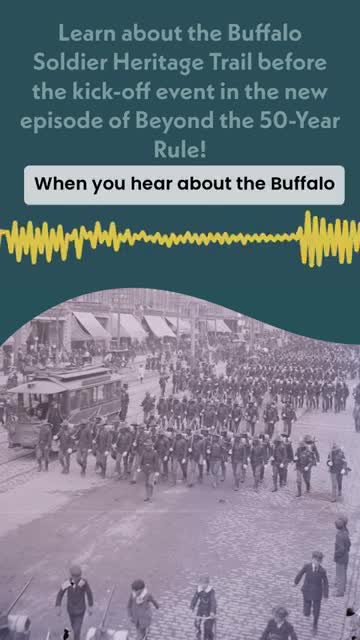Utah trail project spotlights Buffalo Soldiers’ overlooked role in state history
Get AI-powered insights, summaries, and transcripts
Subscribe
Summary
A presenter at a Utah Libraries and History event said a planned trail project aims to highlight the contribution and positive local reception of Buffalo Soldiers in Utah, which the speaker said is often omitted from broader histories.
At a Utah Libraries and History event, a commenter described a planned trail project as an effort to highlight the contribution and successes of Buffalo Soldiers and to correct their omission from many histories of the American West.
"When you hear about the Buffalo Soldiers, Utah kind of is is forgotten in that story," Speaker 1, a commenter, said. "For me, just the idea of building ... is to present stories of contribution and stories of success. And the Buffalo Soldiers are the perfect definition of both of them."
The commenter said the Buffalo Soldiers’ story in Utah is distinctive because public reception there became "more positive," and that the trail project is intended to reflect that local appreciation. "By the time the Buffalo Soldiers in Utah, became part of this culture, there was a lot of love, actually, a lot of respect. And I think that's part of the the the project of the trail itself," the speaker added.
No formal action, vote, or policy decision was recorded in the transcript excerpt provided; the remarks were presented as part of program comments about the trail’s purpose and interpretation. The speaker framed the trail as a public-history project designed to present narratives of contribution and success rather than as a legislative or funding proposal.
Because the transcript excerpt uses an unclear name for the project (recorded as "Sameh Hadithi"), this article does not treat that phrase as a verified project name; the project name and formal sponsors were not specified in the excerpt. The record also did not include details on next steps, funding, timelines, or a sponsoring agency.
Speakers in the excerpt focused on interpretation and reception rather than on operational or legal questions. The remarks highlight a local history emphasis: making the Buffalo Soldiers’ service in Utah visible and acknowledging a reportedly positive reception in the state.
